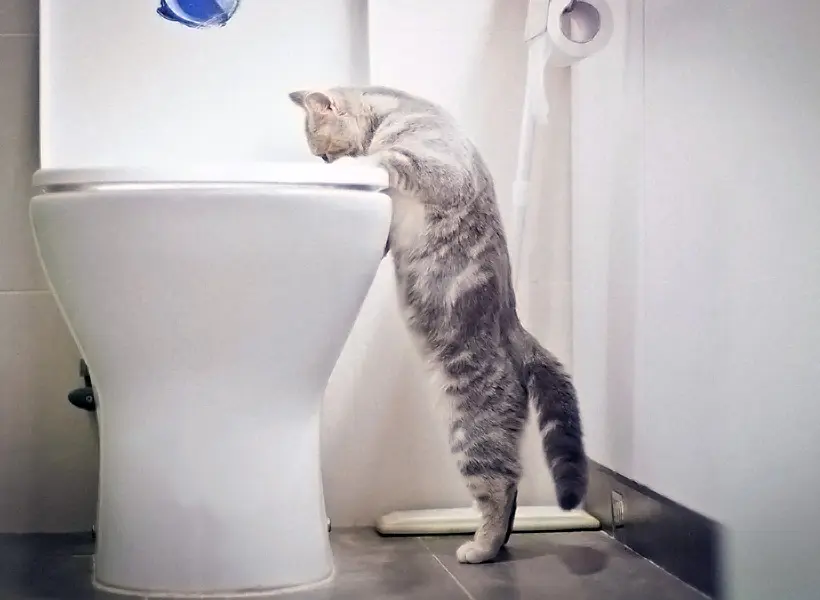Prevent Clogs and Damage: Never Flush Cat Poop Down Your Toilet - Expert Insights
Prevent Clogs and Damage: Never Flush Cat Poop Down Your Toilet - Expert Insights
Blog Article
We've encountered this article relating to Don’t flush cat feces down the toilet down the page on the net and figured it made sense to share it with you over here.

Introduction
As cat proprietors, it's important to bear in mind just how we get rid of our feline pals' waste. While it may seem convenient to purge cat poop down the toilet, this method can have harmful effects for both the environment and human health and wellness.
Ecological Impact
Flushing feline poop presents harmful microorganisms and bloodsuckers right into the water supply, positioning a considerable danger to marine ecosystems. These contaminants can negatively impact marine life and compromise water quality.
Health Risks
In addition to environmental concerns, purging pet cat waste can additionally posture wellness dangers to people. Cat feces might have Toxoplasma gondii, a bloodsucker that can trigger toxoplasmosis-- a potentially serious health problem, specifically for expectant ladies and people with weakened immune systems.
Alternatives to Flushing
The good news is, there are safer and extra accountable ways to get rid of pet cat poop. Think about the complying with options:
1. Scoop and Dispose in Trash
One of the most typical method of disposing of feline poop is to scoop it into a naturally degradable bag and throw it in the garbage. Be sure to use a committed litter scoop and get rid of the waste quickly.
2. Use Biodegradable Litter
Go with naturally degradable pet cat litter made from materials such as corn or wheat. These trashes are eco-friendly and can be safely taken care of in the trash.
3. Hide in the Yard
If you have a backyard, take into consideration hiding feline waste in a designated location away from vegetable yards and water sources. Make certain to dig deep adequate to prevent contamination of groundwater.
4. Mount a Pet Waste Disposal System
Purchase a pet garbage disposal system particularly designed for pet cat waste. These systems utilize enzymes to break down the waste, reducing smell and environmental effect.
Conclusion
Accountable animal ownership prolongs past offering food and sanctuary-- it also entails proper waste monitoring. By avoiding purging pet cat poop down the commode and choosing different disposal approaches, we can reduce our ecological impact and protect human health.
Why You Should Never Flush Cat Poop Down the Toilet
A rose by any other name might smell as sweet, but not all poop is created equal. Toilets, and our sewage systems, are designed for human excrement, not animal waste. It might seem like it couldn’t hurt to toss cat feces into the loo, but it’s not a good idea to flush cat poop in the toilet.
First and foremost, assuming your cat uses a litter box, any waste is going to have litter on it. And even the smallest amount of litter can wreak havoc on plumbing.
Over time, small amounts build up, filling up your septic system. Most litter sold today is clumping; it is made from a type of clay that hardens when it gets wet. Ever tried to scrape old clumps from the bottom of a litter box? You know just how cement-hard it can get!
Now imagine just a small clump of that stuck in your pipes. A simple de-clogger like Drano isn’t going to cut it. And that means it’s going to cost you big time to fix it.
Parasitic Contamination
Believe it or not, your healthy kitty may be harboring a nasty parasite. Only cats excrete Toxoplasma in their feces. Yet it rarely causes serious health issues in the cats that are infected. Most people will be fine too if infected. Only pregnant women and people with compromised immune systems are at risk. (If you’ve ever heard how women who are expecting are excused from litter cleaning duty, Toxoplasma is why.)
But other animals may have a problem if infected with the parasite. And human water treatment systems aren’t designed to handle it. As a result, the systems don’t remove the parasite before discharging wastewater into local waterways. Fish, shellfish, and other marine life — otters in particular — are susceptible to toxoplasma. If exposed, most will end up with brain damage and many will die.
Depending on the species of fish, they may end up on someone’s fish hook and, ultimately on someone’s dinner plate. If that someone has a chronic illness, they’re at risk.
Skip the Toilet Training
We know there are folks out there who like to toilet train their cats. And we give them props, it takes a lot of work. But thanks to the toxoplasma, it’s not a good idea.

Do you appreciate more info about How to Dispose of Cat Poop and Litter Without Plastic Bags? Post feedback down below. We will be delighted to know your opinions about this write-up. Hoping to see you back again in the near future. Make sure you take a moment to share this write-up if you enjoyed reading it. Kudos for your time. Kindly stop by our site back soon.
Quote Report this page